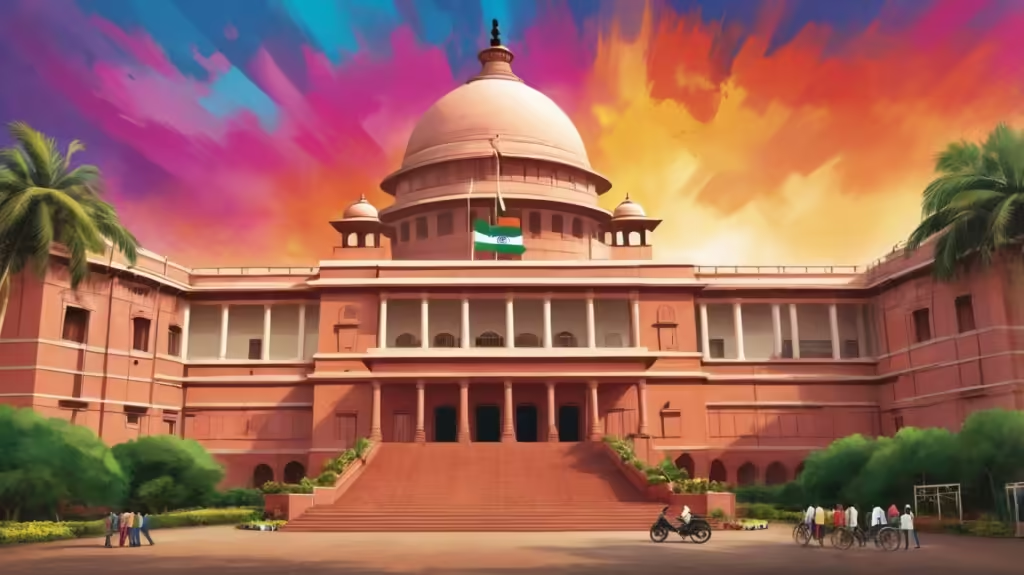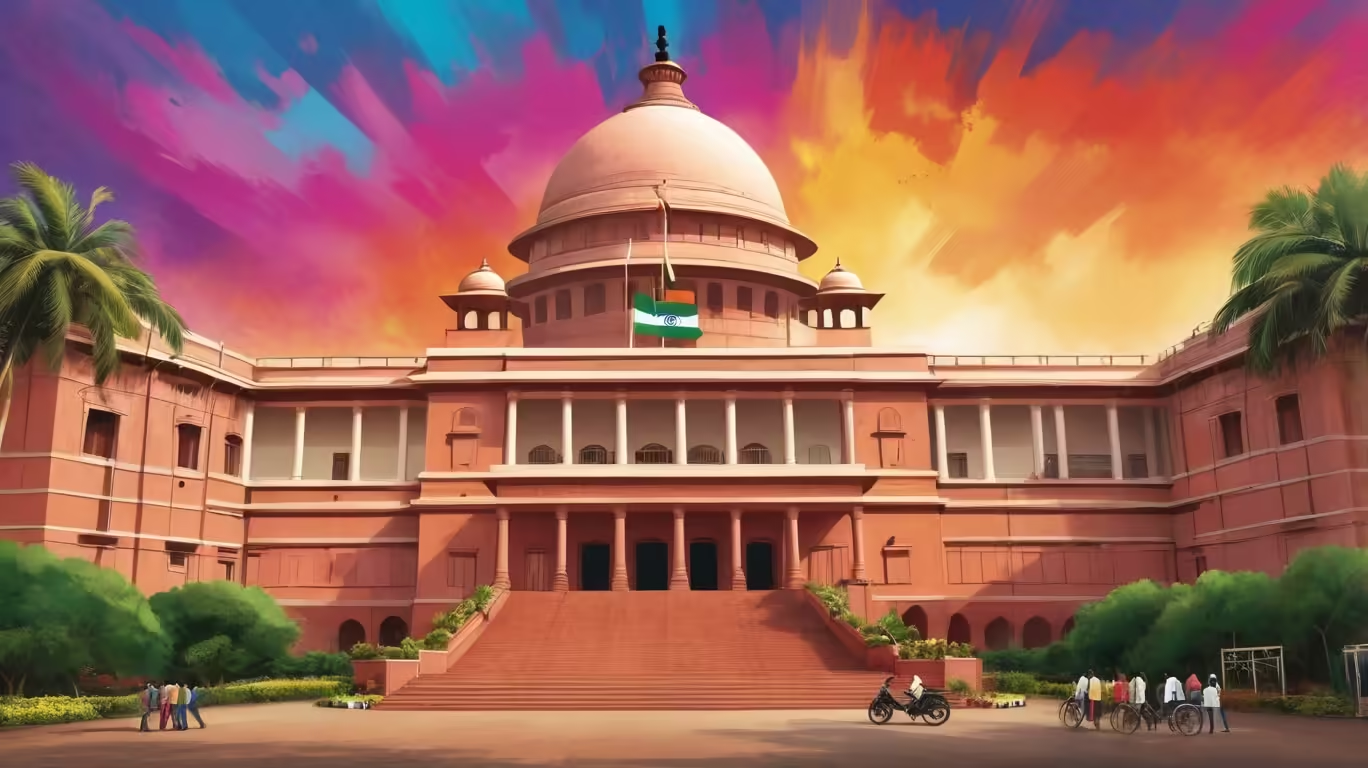1. Historical Background
The Election Commission of India was born in the same year that the Constitution of India came into practice, that is, in the year 1950. The ECI was designed to oversee and ensure free and fair elections, thereby saving the nation from democratic ethos. Over the years, it has evolved in matching the complexity of electoral politics by introducing various reforms and technologies within the electoral procedure.
2. Constitutional Framework
Its legal provisions are taken from the Constitution of India. Articles 324 to 329 refer to elections and enumerate power and functions. The salient points are as follows:
- Article 324: It gives powers to the President of India to provide appointments for the Chief Election Commissioner along with such number of other Election Commissioners as Parliament may determine.
- Article 325: There shall be in respect of any constituency, one roll of electors only for that constituency. The rights of all the electors shall stand on the same platform.
- Article 326: Confers right to vote on every citizen who has completed more than 18 years.

3. Composition of the Election Commission
The ECI consists of:
- Chief Election Commissioner (CEC): It is the head of the Commission and exercises utmost powers relating to the conduct of elections.
- Election Commissioners: Normally, there are two other commissioners who assist the CEC. All three of them are appointed by the President of India for a period of six years. They are permitted to resign or be relieved before the expiry of their term.
3.1 Appointment Procedure
Another important aspect of how they get appointed—the CEC and other commissioners—is the method of their appointment. They are appointed by the President on the advice of the Prime Minister, and that is a source of concern about the independence of the Commission. Reform regarding its autonomy has been debated upon.
3.2 Tenure and Removal
Election Commissioners have a six-year term but can be removed only in a process somewhat similar to the removal of a Supreme Court judge, which ensures some protection from arbitrary dismissal.
Also Read: Balancing Work and Love: 7 Strategies for Busy Couples
4. Functions of the Election Commission
The ECI has an enormous list of responsibilities:
4.1 Conducting Elections
The ECI also conducts elections in the Lok Sabha (House of the People), Rajya Sabha (Council of States), State Legislative Assemblies, and not least to the offices of the President and Vice-President of India. These include:
- Voter Registration: The ECI oversees the making of electoral rolls wherein all eligible citizens are included to be able to vote.
- Polling Process: The ECI oversees the whole process of polling, from deciding where to put up the polling stations to deploying persons and election staff.
4.2 Monitoring and Enforcing
The ECI is the watchdog over political parties and candidates. It ensures all candidates and parties included in an election meet the provisions of electoral law. It enforces:
- Model Code of Conduct: The ECI dictates stipulations for political parties and candidates during an election to run a clean, decently competitive race.
- Action on Grievances: The Commission acts on grievances on electoral malpractices and even withdraws the nomination of a candidate when required.
4.3 Electoral Reforms
Since its establishment, ECI has made numerous reforms to make the voting process more efficient and technocratic. Some of the reforms that it has developed over time are as follows:
- Electronic Voting Machines: The whole process of voting became very efficient and less prone to tampering with EVMs.
- Voter Verifiable Paper Audit Trail (VVPAT): It allows the voter to verify his or her choice, and also there is an increase in transparency.
- Online Voter Registration: The ECI has even introduced online voter registration for easy registration of voters.
4.4 Education and Awareness
The ECI conducts voter education programs so that people are sensitized to the electoral process, the importance of voting, and their rights as voters. “Voter Helpline” and other outreach programs help seek active participation by citizens, especially youths.
5. The Role of Technology in Elections
Technology has increasingly assisted in improving the electoral process during the last few years. In this connection, ECI has opted for various technological inputs that facilitate the efficient and transparent election process.
5.1 Electronic Voting Machines (EVMs)
EVMs have replaced the traditional paper ballots used by most elections. EVMs are meant to ensure faster and more secure voting. EVMs minimize opportunities for tampering and provide a quick count of votes.
5.2 Voter Verifiable Paper Audit Trail (VVPAT)
To counter criticism of EVM integrity, ECI has also initiated VVPAT. With VVPAT, each vote polled by the voters in EVM will have a paper trail to testify that there exists such a record with voters regarding their choices. VVPAT has been the reason for tremendous increase in confidence among the voters towards an election.
5.3 Online Services
The ECI has evolved various web-based services that concern voter registration, searching electoral rolls, and nominations filing. Through these, it has sought to reach out to the masses as part of the electoral process.
6. Challenges Facing the Election Commission
Despite its significance, the ECI still faces many challenges as follows:
6.1 Political Pressure
On the other hand, elections give rise to extreme political pressure that various groups often put on the ECI. In such circumstances, the independence of the Commission is compromised when politicians try to influence its decisions.
6.2 Electoral Malpractices
Indian elections have problems, amongst others, of vote buying, voter intimidation, and misutilization of money power. The ECI is on its toes constantly fighting these malpractices with stringent law enforcement.
6.3 Technological Vulnerabilities
Though technology has always been proven helpful for the electoral process, it has always been a challenge. The risk of cyber security poses a significant threat to EVMs, while leakage of information is what ECI worries about for spotless elections.
7. Election Commission and Its Importance
The Election Commission of India forms the backbone of Indian democracy. Its importance lies in:
7.1 Free and Fair Elections
The ECI must ensure that every election reflects the will of the people. Therefore, one can well say that free and fair elections can be a minimum requirement for any government to remain democratic.
7.2 Democratic Principles Ensurance
This implies enforcing the electoral laws and instilling transparency as the ECI’s immediate concerns to ensure that constitutional provisions of democratic principles are followed through. It has an important role in fostering public confidence in the electoral process.
7.3 Promoting Political Activity
Voter education by the ECI encourages people to take interest in the electoral process. High voter activity is the most significant for a flourishing democracy.
8. Conclusion
ECI is an absolutely indispensable component in the sustenance of democratic fabrics within the nation. The efforts
